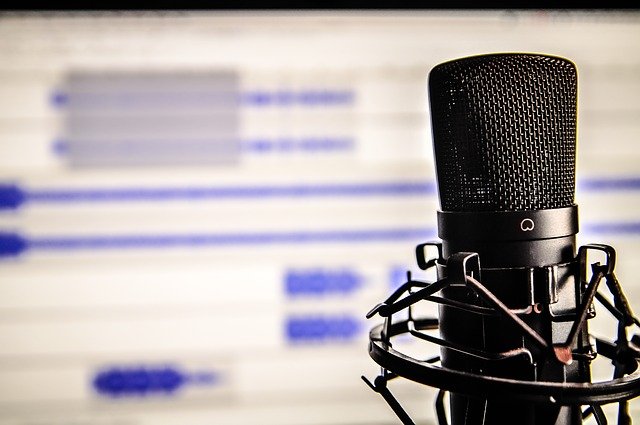Speaking and Voicing Tricks for Podcasting

Speaking and voicing tricks are one and many. There are exercises for public speakers who need the strength and power of their voice to be at a maximum. There are exercises for singers who need to learn how to put power into their melodious voices. But it is rare to find voicing exercises specifically curated for podcasting.
Podcasting sells on conversations. They talk about topics under a bigger and more general theme. Podcasters invite guests they could interview as well. What is great about it is that listeners could tune in anywhere and anytime they can. Since these are pre-recorded content, listeners could download these on their smartphones and listen even without an internet connection. Rarely with visual input, podcasters could sell purely from the voice of the host. Here are some tips and tricks on how to improve your voice quality for podcasting:
Speaking and voicing tricks for vocal power
One of the most important characteristics of a podcaster’s voice is power. With no visual input, it is hard to believe that people would continue listening to a podcast if the podcaster’s voice is not engaging enough. Exceptions may be the podcast’s niche that really uses weak voices – like ASMR, bedtime stories, and relaxation podcasts. A person’s voice who is not used to lengthy conversations can be weak. Articulation is definitely affected. At some point, it may be difficult to maintain a certain pitch and loudness to the voice. This is why voice exercises are important for people who want to enter the podcasting industry.

Memorize a poem and recite it when you can
One of the best and easiest ways to improve the power and strength of your voice is through vocal exercises. The best way is to memorize a poem and recite it WHENEVER YOU CAN. You can recite it while cleaning your house, driving to work, taking a shower, cooking, or any dull time when speaking is not needed. At first, it is to practice the tone and loudness of your voice. With specialized microphones and equipment, you would want your voice to sound just right (not too loud nor too soft). Then, it becomes a breathing exercise. You could recite the poem the fastest and slowest you can. Can you recite the poem at high speeds while perfectly enunciating every word clearly? And lastly, it is a great way to learn accentuation. You could try reciting it in a variety of pronunciations and accentuations.
Record and listen
Listening to our own voice is not enjoyable. However, if we are to edit our own work, listening to our voices may be vital to success. It is not just learning how you sound but researching how you could sound better. Why is it important to practice recording? It is so you would know how you sound to somebody else. Did you enunciate the words really well? Is your voice too loud for the recording? Do you sound too breathy on the microphone? These are some of the things that you might need to look back on every time you practice recording.
Don’t focus too much on “techniques”
Speaking and voicing tricks are very important in being a podcaster, a vlogger, a singer, or a broadcaster. Learning techniques to deliver a podcast is great. Train yourself the different kinds of pauses. Be aware of your breathing. Give yourself a “podcast worthy” accent. These are all great, you do you. However, the only advice for this is to make sure to keep it natural. Sometimes when you train yourself about when to use different kinds of pauses and breathing, it takes a toll on us. Simple awareness becomes hyper-awareness. We can’t stop thinking about it and IT WILL SHOW. Focusing too much on techniques and making sure you wing it every time may make the podcast sound too practiced. Or worse, too scripted. The voice is raw and honest, it tells the listeners if we are nervous, sad, or practiced.
Give yourself a break. Relax and simply enjoy the podcast. You forgot to pause on that last sentence, just go with the flow. Enunciated one word wrong, apologize then correct yourself.
Have a happy exercise before a podcast
Since there is no visual input, listeners become more sensitive to changes in moods and energy based on a podcaster’s voice. Nobody wants to sound too bored or sad during a podcast right? This is why lifting your energy and positivity before a podcast is important. Preparing yourself for the recording is vital to the podcast’s success. Remember, podcasts can tend to be rawer than other types of content. A person’s bored or sad voice cannot be edited out.
How do you do this? Maybe have a happy playlist to listen to before a podcast. Maybe exercising or doing yoga is also good to uplift your energy. Perhaps, drink a cup of coffee and stay in silence. The important thing is to find something that uplifts you and do this routinely before a recording.
Also read: Tune-in to These Self-Improvement and Motivational Podcasts for the New Year
Civil Engineer by profession, Writer by passion. Serving readers since 2014 on different niches like Science, Current Events, Tech, and Travel.

